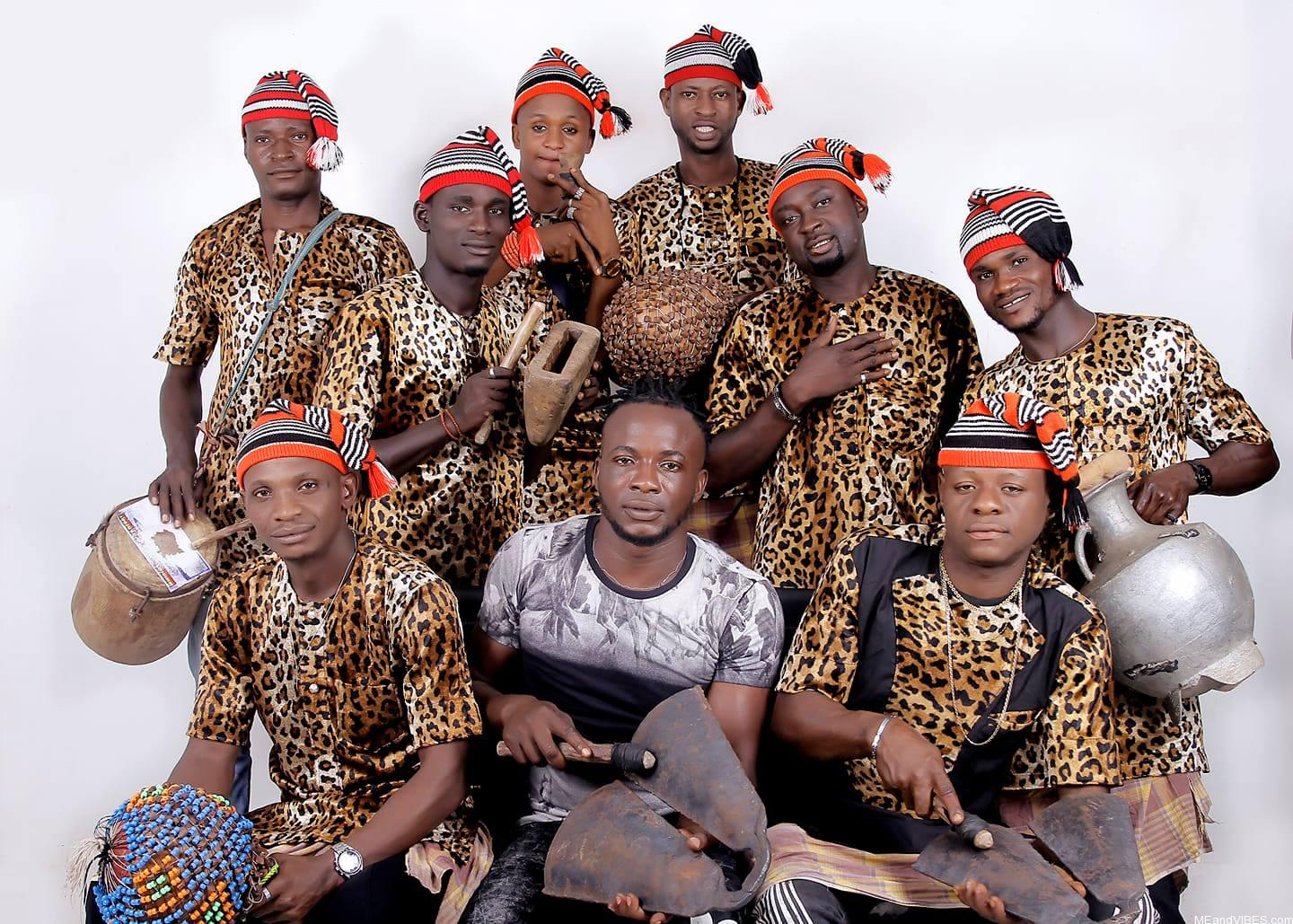Ogene music gains popularity on the Nigerian music scene.
Ogene music finds traditional prominence in parts of West Africa, especially among the Igbo people in the Southeast of what is presently known as Nigeria. It is composed of a metal gong for lead, accompanied with an udu drum for bass, a small carved flute or oja, smaller drums and an assortment of other instruments varied according to need, but most importantly, small-sized to make for easy carrying and mobility; this is because Ogene music is such in which the performers sway and gyrate to the rhythm.
The musical composition of Ogene is just one aspect of it which is as important as the vocals and lyrics. Quite interestingly, Ogene music is such that doesn’t require the vocal sedation for which RnB, Blues and other contemporary genres are known. On the contrary, since the lead vocalist, who is often the person playing the gong, doesn’t rely on any microphones or public address systems but entirely on the strength of his own voice to deliver his lyrics, his vocal quality has to be original and powerful while retaining its musical appeal. Also, the dynamics of the instrumental accompaniment is varied periodically to flow along with the lyrical delivery. Interestingly also, the other musicians offer backup vocals, making Ogene music one that requires the musicians to be as much vocalists as they are instrumentalists.
Originally, the gong in traditional Igbo societies is used by town criers when they go about their duties in the evenings to disseminate information to the villagers. As a child, I remember my grandmother would hush us whenever the sound of the town crier’s gong drew near, and then she would listen intently when the town crier, grey-haired and sprightly, delivered his message in his voice that rang out clear and loud as his Ogene. If he were to halt in front of our house, my grandmother was sure to hurry to the front yard to ask him some questions relating to the message he was disseminating.
In a way, the Ogene music, in its delivery, can be likened to the role it serves for the town crier, and the lead vocalist can very much be seen to be a town crier. This is evidenced in the lyrics of Ogene music.
Lyrically, Ogene music, in its traditional form, has served to address social issues, trifle communal matters, praises for individual and communal achievements, and folklore. In Enugu, for instance, it has become a culture that Ogene music accompanies street marathons and this makes it pleasurable in many ways.
the Ogene music can be likened to the role it serves for the town crier and the lead vocalist can very much be seen to be a town crier
As though it has saturated its purposes within traditional confines, Ogene music is currently seeping into contemporary music culture, with Ogene musicians like Ejyk Nwamba and the Okwesili Eze Group leading the fore.
It is important first to make mention of Ebuka Donechester, an Ogene musician, whose song ‘Since Morning’ caught the attention of Nigerian celebrity Hip Hop musician, D’Banj, who then went on to infuse it in his 2019 single ‘Shy’, thus getting Ebuka Donechester riled over copyright infringement. There is no way of telling how it all panned out as Ebuka Donechester is no more on social media soliciting for people to pressure D’Banj into paying attention to his copyright claims.
With Ejyk Nwamba, we see a fusion of Ogene into Gospel music in his track ‘Ndi Ogene Ejebego Uka’. The title loosely translates to ‘Ogene musicians are now church adherents’. By all standards, ‘Ndi Ogene Ejebego Uka’ is a an artistic and cultural success, embracing almost every brand of Christianity in Nigeria, with a base of Ogene music. This is something new, well thought-out and ingenious, especially as every component elements retain their originality and form.
Ogene music’s current inroad into contemporary music is seen yet again with Ejyk Nwamba being featured in the rapper, Kolaboy’s, ‘Omalicha’. One would never have thought that there could be found a common ground for Ogene music and Hip-Hop, but with ‘Omalicha’, a new perspective has been revealed.
We should also not leave out the Okwesili Eze Group, an Ogene music group currently signed with Five Star Music and who together with the singer, KCee, have so far culturally experimented with Gospel and Hip-Hop genres, both of which has attained record success.
Ogene music, in its traditional form, has served to address social issues, trifle communal matters, praises for individual and communal achievements, and folklore.
At the current rate with which Ogene music is embracing other genres, we shouldn’t be surprised to see more of groundbreaking fusion of musical cultures in the near future. Music, just like every other form of art, is expressive, replicating, through various mediums, different aspects of the human experience. Hence, for the fact that there are people who love different genres of music, it becomes natural for us, every now and then, to witness experimental fusions of musical forms as we see with Ogene’s newfound embrace of contemporary music.
